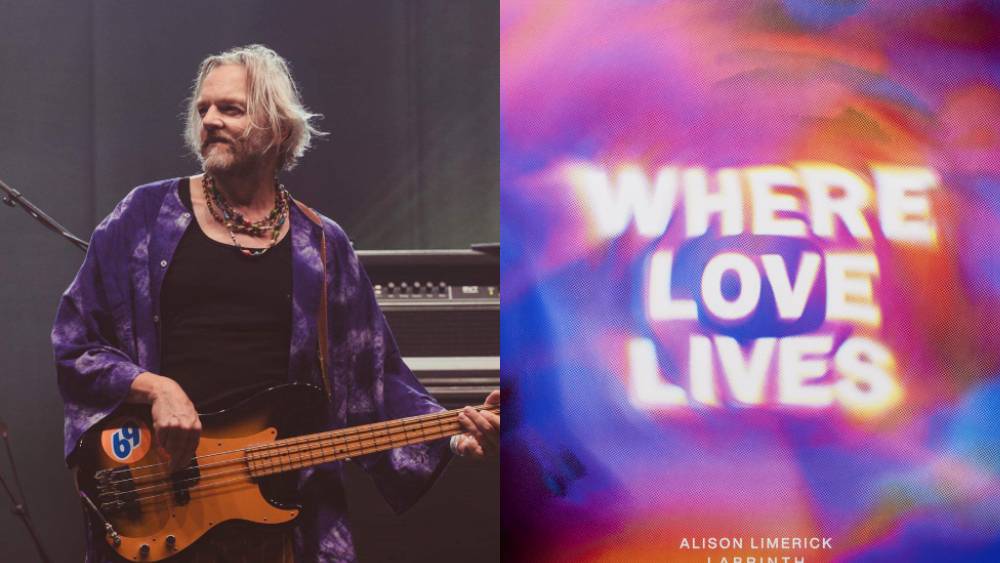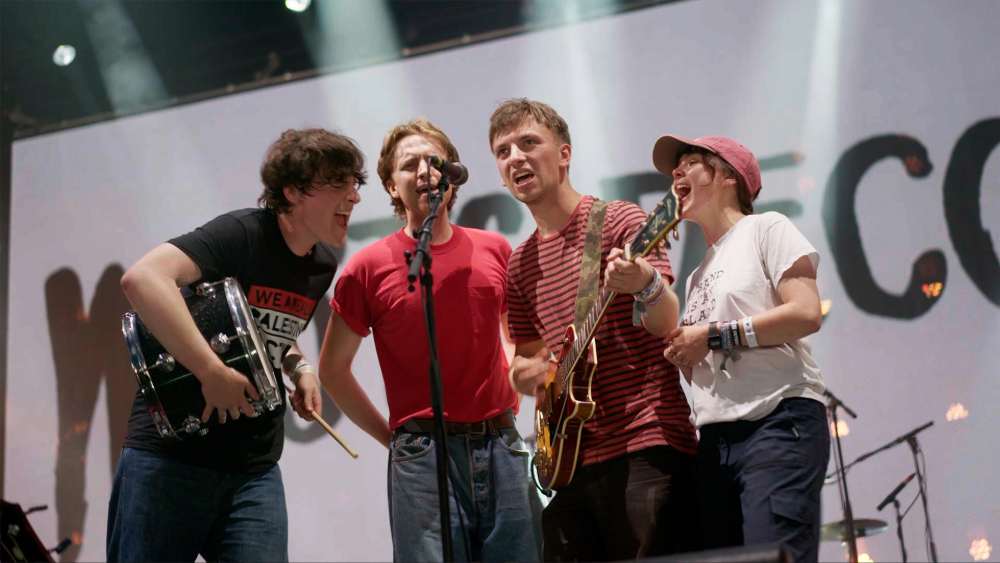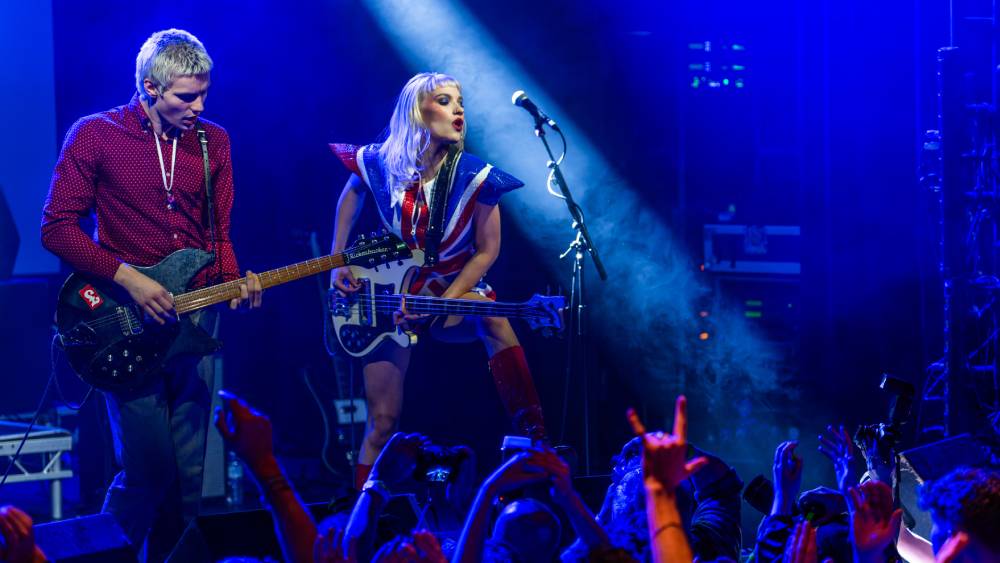Many music creators dream of seeing their work being performed on the biggest stages. For songwriters who typically work behind the scenes with performers, sometimes the greatest reward can come from watching on with pride as their collaborators bring their songs to life in the live arena.
This should also serve as a timely reminder that the craft of songwriting doesn’t begin and end in the studio. Nor do the potential benefits: earning live royalties might sound like an opportunity that’s reserved for touring artists, but songwriters can be in line to receive those royalties whenever their music is performed live.
When a gig takes place in a licensed music venue, setlists can be reported to PRS by the PRS member or to PPL PRS by either the venue, promoter or performer, along with such details as the name(s) of the songwriter(s), song titles and duration. Once a licence fee is collected from the venue or promoter by PPL PRS, the setlist is then matched with the registered works in the PRS database and royalties can be calculated. These calculations are based on three sets of criteria: how many acts performed at the gig, how long the shows were and how many writers are registered on each track.
In short, you don’t need to be a stadium-conquering star in order to receive live royalties — find out more about live royalties here.
London-based songwriter and producer Tre Jean-Marie is one artist who has reaped the benefits of his lyrics reaching stages around the world, having written for the likes of Little Mix, Olivia Dean and Tom Grennan. While he tends to work within the creative confines of studio walls, Tre has been clued up on the importance of live royalties since the early days of his career.
‘I’ve always been quite business-minded, so knowing my income streams is really important,’ he tells M. ‘It’s important to go out of your way to do your research and know every aspect of your business. Because that’s exactly what it is: it’s a business. I think people tend to forget that sometimes.’
The first significant live royalties Tre received came after working as a writer and producer on Craig David’s 2016 comeback album Following My Intuition, which the singer followed with an arena tour. ‘Because quite a huge part of the setlist was my songs, I soon realised the value,’ Tre recalls. ‘That was definitely the first time my eyes were really opened wide [to live royalties].’
Along with the financial benefits, Tre says it’s always an ‘incredible’ experience watching his songs being performed live: ‘Taking my kids to the [Capital] Summertime Ball and not only seeing them sing their heart out to everybody else’s songs, but seeing them know my songs, it’s like watching your ideas and songs come to life in ways that you can never imagine when you’re in the studio. It’s probably my favourite part of the job.’
‘I’ve always been quite business-minded, so knowing my income streams is really important.' - Tre Jean-Marie
For Grammy-nominated west London songwriter Carla Marie Williams, her first live royalties marked a significant moment of career validation. After joining the hitmaking songwriting team at Xenomania, she co-wrote Girls Aloud’s BRIT Award-winning track The Promise. The song has since earned live royalties for its songwriters whenever the girl group have performed it on tour. ‘I remember my mum’s reaction. All of a sudden, my job was a proper job!’ she remembers with a laugh.
Carla has previously written for such artists as Beyoncé, Britney Spears and Kylie Minogue, but estimates that she was in the industry for a decade before she was in a position to claim significant royalties. Since then, she’s seen her work transcend the space it was conceptualised in.
‘I saw Beyoncé perform Freedom at Wembley Stadium and I was like, “Wow, seeing her actually bring it to life is amazing,”’ she remembers. Carla also got to share in the pride of the US star making history in 2018 as the first Black woman to headline California festival Coachella. During that set, Freedom was elevated to new heights with an all-singing, all-dancing marching band ensemble. ‘It was phenomenal,’ she says now. ‘I’m really proud when I see that.’
This sense of achievement is something that also resonates with Jack Allsopp, the north London artist better known by his stage name Just Jack. Admitting to M that he initially had ambitions ‘not to play live’ in the early days of his career as a bedroom artist, he was first introduced to the concept of live royalties when writing down his DJ setlists that sampled other artists, for the purpose of submitting to PRS.
Eventually, though, he was persuaded to bring his own material to the stage, including his career-defining 2007 hit Starz in Their Eyes, which spent 26 weeks on the UK singles chart. Now, nearly 20 years later, he’s watched that track receive a new lease of life after PinkPantheress sampled the chorus on her song Stars. Watching the Gen Z superstar reignite his lyrics on stages across both sides of the Atlantic has been heartening, as a new generation is resonating with his words in a live setting.
‘I got to play with Pink at Glastonbury, which was quite mind-blowing for a lot of young people. My daughter, my son and all their friends would have been like, “Oh, it’s all true about you!”’ he tells M with a laugh. ‘I’m quite surprised that the song still has relevance to people after nearly 20 years.’
Still, that ‘icing on the cake’ moment for Jack has only underscored the importance of being business savvy by ensuring things like live royalties don’t ‘fall through the cracks’.
‘It definitely is something that needs to keep getting talked about, because musicians really need to find money these days,’ he adds.
‘I saw Beyoncé perform Freedom at Wembley, which I co-wrote. I was like, “Wow, seeing her actually bring it to life is amazing."' - Carla Marie Williams
Carla, who founded the organisation Girls I Rate to support young women in the music and creative industries, agrees that it’s essential that songwriters stay on top of their admin.
‘We must educate ourselves enough to ensure that our songs are registered with PRS, so that when they’re being performed live we’re collecting money for it — no matter how small or big a venue is,’ she says. ‘I think that’s really important.’
Tre’s own advice for emerging songwriters chimes with this, as he emphasises the need to learn about every income stream while ‘knowing your rights as a writer’. As priceless as those live moments may be, he insists that chasing those stadium-sized highs should never interrupt the quiet work ethic of real, authentic songwriting. Instead, it should motivate you to pick up the pen.
‘Seeing your songs out in the real world is so inspiring,’ he tells M. ‘For me, it gives the extra drive to go and make more music.’
Want to find out more about how you can earn live royalties for your performances?





